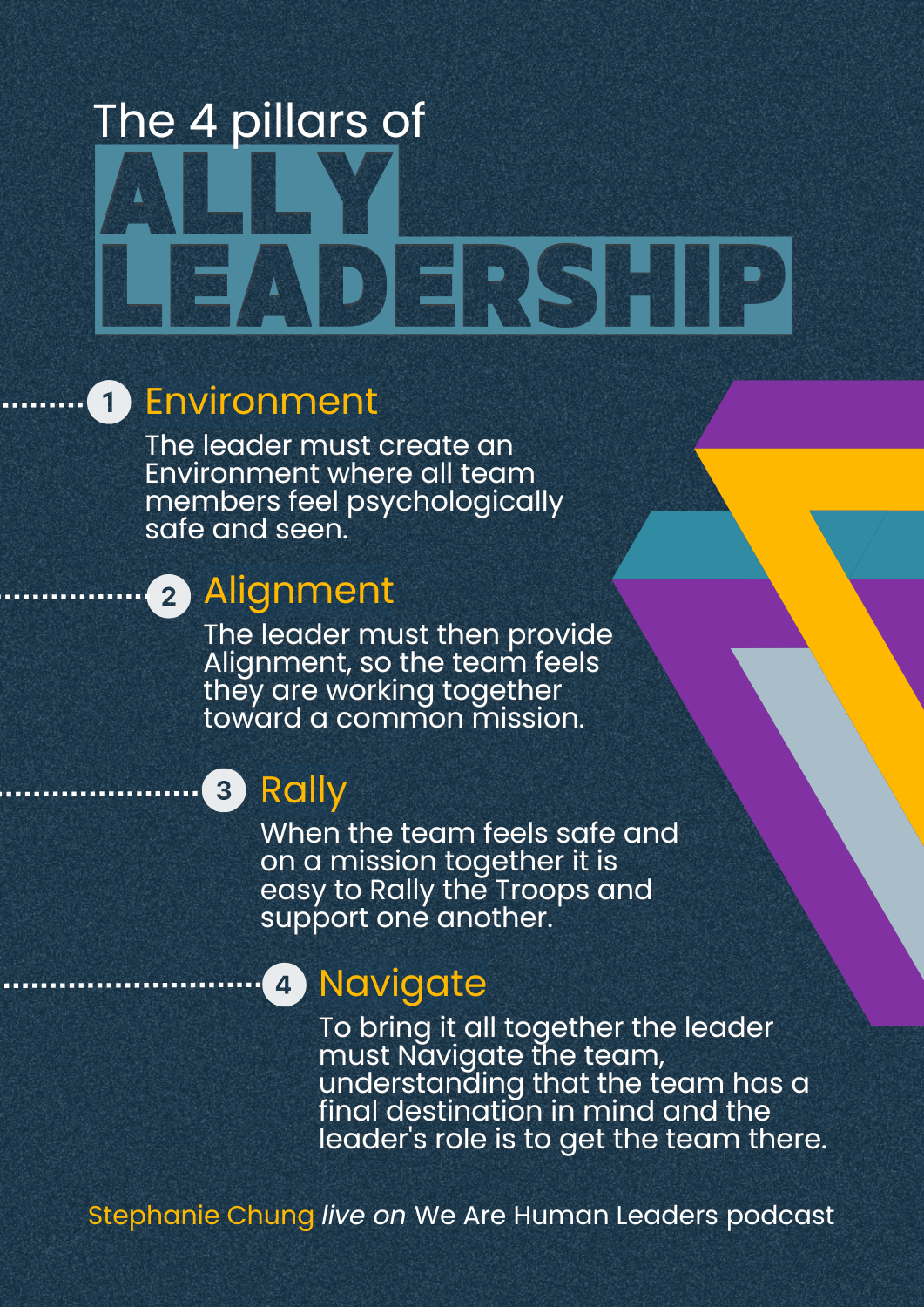How to Work with People Who are Different To You
In a world that’s increasingly diverse, the old ways of leadership just don’t cut it anymore. That’s why we were so excited to sit down with the incredible Stephanie Chung on the latest episode of the We Are Human Leaders podcast. Stephanie is a pioneering woman of color in the aviation sector and author of "Ally Leadership: How to Lead People Who Are Not Like You." Our conversation was jam-packed with insights on how to move beyond outdated leadership models and truly connect with the brilliant individuals on your team.
Stephanie shared her personal journey navigating the "pale, male, and stale" world of private aviation. Her experiences taught her invaluable lessons about leading people with different backgrounds, perspectives, and lived experiences. The core of Stephanie's message is that effective leadership today requires a shift in mindset – a move towards allyship.
Ally Leadership Defined
Ally leadership isn't just about being nice; it's a proactive and intentional approach centered on understanding and supporting your team. The foundation of ally leadership is embodied in the acronym EARN (Environment, Alignment, Rally, Navigate).The leader must create an Environment where all team members feel psychologically safe and seen. The leader must then provide Alignment, so the team feels they are working together toward a common mission. When the team feels safe and on a mission together it is easy to Rally the Troops and support one another. To bring it all together the leader must Navigate the team, understanding that the team has a final destination in mind and the leader's role is to get the team there.
Privilege Awareness
Stephanie emphasized that everyone possesses some form of privilege, whether it’s related to gender, race, socio-economic status, or physical ability. Effective leaders recognize their own privileges and use them to uplift and support others.
Stephanie also shared how traditional leadership often focuses on technical solutions and rigid processes. Ally leadership, on the other hand, requires a tactical approach – prioritizing open communication, active listening, and a genuine desire to understand your team members' unique challenges and perspectives.
What’s the ROI of Allyship?
Diverse teams aren't just the right thing to do; they're also good for business. Studies show that diverse companies are more profitable and innovative. Ally leadership allows you to unlock the full potential of your team, driving both individual and organizational success.
Embracing ally leadership isn't always easy. It requires courage to challenge the status quo, to have uncomfortable conversations, and to stand up for what you believe in. But as Stephanie reminded us, true leadership demands courage.
“Ultimately, ally leadership is about creating a workplace where everyone feels valued, respected, and empowered to contribute their best work. By embracing vulnerability, prioritizing understanding, and taking action, we can all become better allies and create a more inclusive and successful future.”
Find the episode on your favourite streaming platform below:
Apple Podcasts
Spotify
Amazon Music
YouTube
Deezer
iHeartRadio



